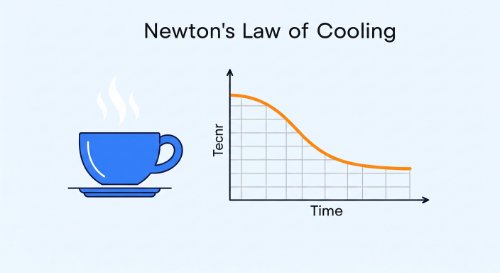Simple non-linear equations (2) - Solutions of First-Order Ordinary Differential Equations | Ordinary Differential Equations - Mathematical Methods (Undergraduate Advanced)
SPONSORED Get Personalized Tutoring NowStruggling with a tough concept or looking to advance your skills? Our expert tutors offer one-to-one guidance tailored to your unique needs.
Get instant support, clear explanations, and practical strategies to master even the most challenging subjects. With flexible scheduling and customized learning plans, success is just a session away.
Book your personalized tutoring today and start achieving your academic goals!
Get Personalized Tutoring NowStruggling with a tough concept or looking to advance your skills? Our expert tutors offer one-to-one guidance tailored to your unique needs.
Get instant support, clear explanations, and practical strategies to master even the most challenging subjects. With flexible scheduling and customized learning plans, success is just a session away.
Book your personalized tutoring today and start achieving your academic goals!
Struggling with a tough concept or looking to advance your skills? Our expert tutors offer one-to-one guidance tailored to your unique needs. Get instant support, clear explanations, and practical strategies to master even the most challenging subjects. With flexible scheduling and customized learning plans, success is just a session away. Book your personalized tutoring today and start achieving your academic goals!
 Ordinary Differential Equations - Mathematical Methods (Undergraduate Advanced)This course provides a complete guide to solving ordinary differential equations (ODEs). It covers the classification of differential equations and details the solution methods for first-order equations, including separable, homogeneous, exact, and linear types. The course then moves to second-order linear equations with constant coefficients and covers the methods of undetermined coefficients and variation of parameters.
Differential equations are the mathematical language used to model dynamic systems in science and engineering. They are used to describe the motion of objects, the flow of electric circuits, population growth, radioactive decay, and chemical reaction rates. A command of this subject is a non-negotiable requirement for any serious study in physics, engineering, or applied mathematics.
By the end of this course, you will be able to classify any ordinary differential equation by its order, degree, and linearity. You will be able to solve a wide variety of first-order ODEs and constant-coefficient second-order ODEs. You will also be able to model and solve real-world problems, such as orthogonal trajectories, exponential growth and decay, and simple electric circuits.
This course is for undergraduate students in mathematics, physics, engineering, and chemistry. It is a standard module in any mathematical methods curriculum and assumes a full prerequisite knowledge of single and multivariable calculus. It is an essential foundation for the study of partial differential equations, control theory, and advanced physics.
Ordinary Differential Equations - Mathematical Methods (Undergraduate Advanced)This course provides a complete guide to solving ordinary differential equations (ODEs). It covers the classification of differential equations and details the solution methods for first-order equations, including separable, homogeneous, exact, and linear types. The course then moves to second-order linear equations with constant coefficients and covers the methods of undetermined coefficients and variation of parameters.
Differential equations are the mathematical language used to model dynamic systems in science and engineering. They are used to describe the motion of objects, the flow of electric circuits, population growth, radioactive decay, and chemical reaction rates. A command of this subject is a non-negotiable requirement for any serious study in physics, engineering, or applied mathematics.
By the end of this course, you will be able to classify any ordinary differential equation by its order, degree, and linearity. You will be able to solve a wide variety of first-order ODEs and constant-coefficient second-order ODEs. You will also be able to model and solve real-world problems, such as orthogonal trajectories, exponential growth and decay, and simple electric circuits.
This course is for undergraduate students in mathematics, physics, engineering, and chemistry. It is a standard module in any mathematical methods curriculum and assumes a full prerequisite knowledge of single and multivariable calculus. It is an essential foundation for the study of partial differential equations, control theory, and advanced physics.
This course provides a complete guide to solving ordinary differential equations (ODEs). It covers the classification of differential equations and details the solution methods for first-order equations, including separable, homogeneous, exact, and linear types. The course then moves to second-order linear equations with constant coefficients and covers the methods of undetermined coefficients and variation of parameters. Differential equations are the mathematical language used to model dynamic systems in science and engineering. They are used to describe the motion of objects, the flow of electric circuits, population growth, radioactive decay, and chemical reaction rates. A command of this subject is a non-negotiable requirement for any serious study in physics, engineering, or applied mathematics. By the end of this course, you will be able to classify any ordinary differential equation by its order, degree, and linearity. You will be able to solve a wide variety of first-order ODEs and constant-coefficient second-order ODEs. You will also be able to model and solve real-world problems, such as orthogonal trajectories, exponential growth and decay, and simple electric circuits. This course is for undergraduate students in mathematics, physics, engineering, and chemistry. It is a standard module in any mathematical methods curriculum and assumes a full prerequisite knowledge of single and multivariable calculus. It is an essential foundation for the study of partial differential equations, control theory, and advanced physics.
![[OAU, Ife] CHE 306: Engineering Analysis II](https://media.unidrills.com/LearningTracks/nyz7VmyrnU/avatar.JPEG) [OAU, Ife] CHE 306: Engineering Analysis IIAdvanced engineering mathematics covering numerical and analytical methods of engineering analysis.
Curated for third-year students of engineering at Obafemi Awolowo University, Ile-Ife, Nigeria. Students and professionals with similar learning goal will also find this learning track useful.
[OAU, Ife] CHE 306: Engineering Analysis IIAdvanced engineering mathematics covering numerical and analytical methods of engineering analysis.
Curated for third-year students of engineering at Obafemi Awolowo University, Ile-Ife, Nigeria. Students and professionals with similar learning goal will also find this learning track useful.
![[OAU, Ife] MTH 201: Mathematical Methods I](https://media.unidrills.com/avatars/learningTrack/OHoduvR7EGCLQ1QVppMK.JPEG) [OAU, Ife] MTH 201: Mathematical Methods IThis learning track delivers the complete mathematical toolkit required for a university-level science, engineering, or computing degree. It systematically covers the entire MTH 201 curriculum, building from the foundational principles of single-variable calculus - functions, limits, continuity, and differentiability - to the advanced methods of multivariable calculus, infinite series, numerical methods, and ordinary differential equations. This is the definitive preparation for advanced quantitative study.
This programme is designed for second-year students offering MTH 201 at Obafemi Awolowo University, Ile-Ife, Nigeria. It is also helpful for any student in a STEM field - including physics, engineering, and computer science - who requires a rigorous and comprehensive command of calculus and its applications.
This track delivers a full skill set in mathematical analysis and applied problem-solving. Graduates will be able to solve a wide range of problems, from optimising multivariable functions to modelling dynamic systems with differential equations and testing the convergence of infinite series. This programme directly prepares students for success in advanced courses in vector calculus, partial differential equations, and real analysis, providing the necessary foundation for a career in engineering, data science, or theoretical physics.
[OAU, Ife] MTH 201: Mathematical Methods IThis learning track delivers the complete mathematical toolkit required for a university-level science, engineering, or computing degree. It systematically covers the entire MTH 201 curriculum, building from the foundational principles of single-variable calculus - functions, limits, continuity, and differentiability - to the advanced methods of multivariable calculus, infinite series, numerical methods, and ordinary differential equations. This is the definitive preparation for advanced quantitative study.
This programme is designed for second-year students offering MTH 201 at Obafemi Awolowo University, Ile-Ife, Nigeria. It is also helpful for any student in a STEM field - including physics, engineering, and computer science - who requires a rigorous and comprehensive command of calculus and its applications.
This track delivers a full skill set in mathematical analysis and applied problem-solving. Graduates will be able to solve a wide range of problems, from optimising multivariable functions to modelling dynamic systems with differential equations and testing the convergence of infinite series. This programme directly prepares students for success in advanced courses in vector calculus, partial differential equations, and real analysis, providing the necessary foundation for a career in engineering, data science, or theoretical physics.
This learning track delivers the complete mathematical toolkit required for a university-level science, engineering, or computing degree. It systematically covers the entire MTH 201 curriculum, building from the foundational principles of single-variable calculus - functions, limits, continuity, and differentiability - to the advanced methods of multivariable calculus, infinite series, numerical methods, and ordinary differential equations. This is the definitive preparation for advanced quantitative study. This programme is designed for second-year students offering MTH 201 at Obafemi Awolowo University, Ile-Ife, Nigeria. It is also helpful for any student in a STEM field - including physics, engineering, and computer science - who requires a rigorous and comprehensive command of calculus and its applications. This track delivers a full skill set in mathematical analysis and applied problem-solving. Graduates will be able to solve a wide range of problems, from optimising multivariable functions to modelling dynamic systems with differential equations and testing the convergence of infinite series. This programme directly prepares students for success in advanced courses in vector calculus, partial differential equations, and real analysis, providing the necessary foundation for a career in engineering, data science, or theoretical physics.
![[UI, Ibadan] MAT 241: Ordinary Differential Equations](https://media.unidrills.com/avatars/learningTrack/IAA7rpO8u3FsODd_K062.JPEG) [UI, Ibadan] MAT 241: Ordinary Differential EquationsComprehensive treatise of advanced calculus covering ordinary differential equations, finite differences, difference equations and numerical integration.
Curated for second-year students of engineering and physical sciences at University Of Ibadan, Nigeria. Students and professionals with a similar learning goal will also find this learning track useful.
[UI, Ibadan] MAT 241: Ordinary Differential EquationsComprehensive treatise of advanced calculus covering ordinary differential equations, finite differences, difference equations and numerical integration.
Curated for second-year students of engineering and physical sciences at University Of Ibadan, Nigeria. Students and professionals with a similar learning goal will also find this learning track useful.
Comprehensive treatise of advanced calculus covering ordinary differential equations, finite differences, difference equations and numerical integration. Curated for second-year students of engineering and physical sciences at University Of Ibadan, Nigeria. Students and professionals with a similar learning goal will also find this learning track useful.